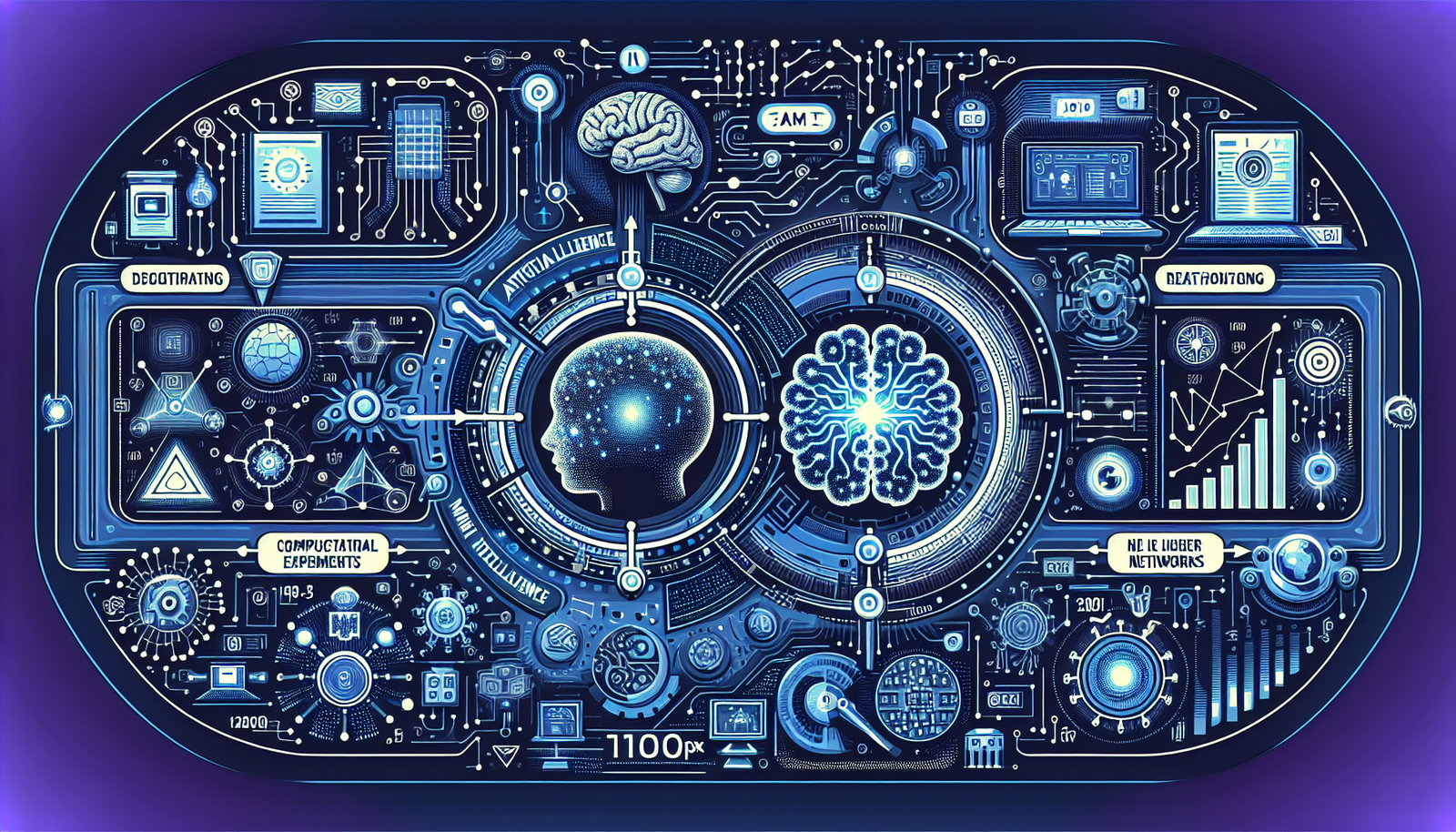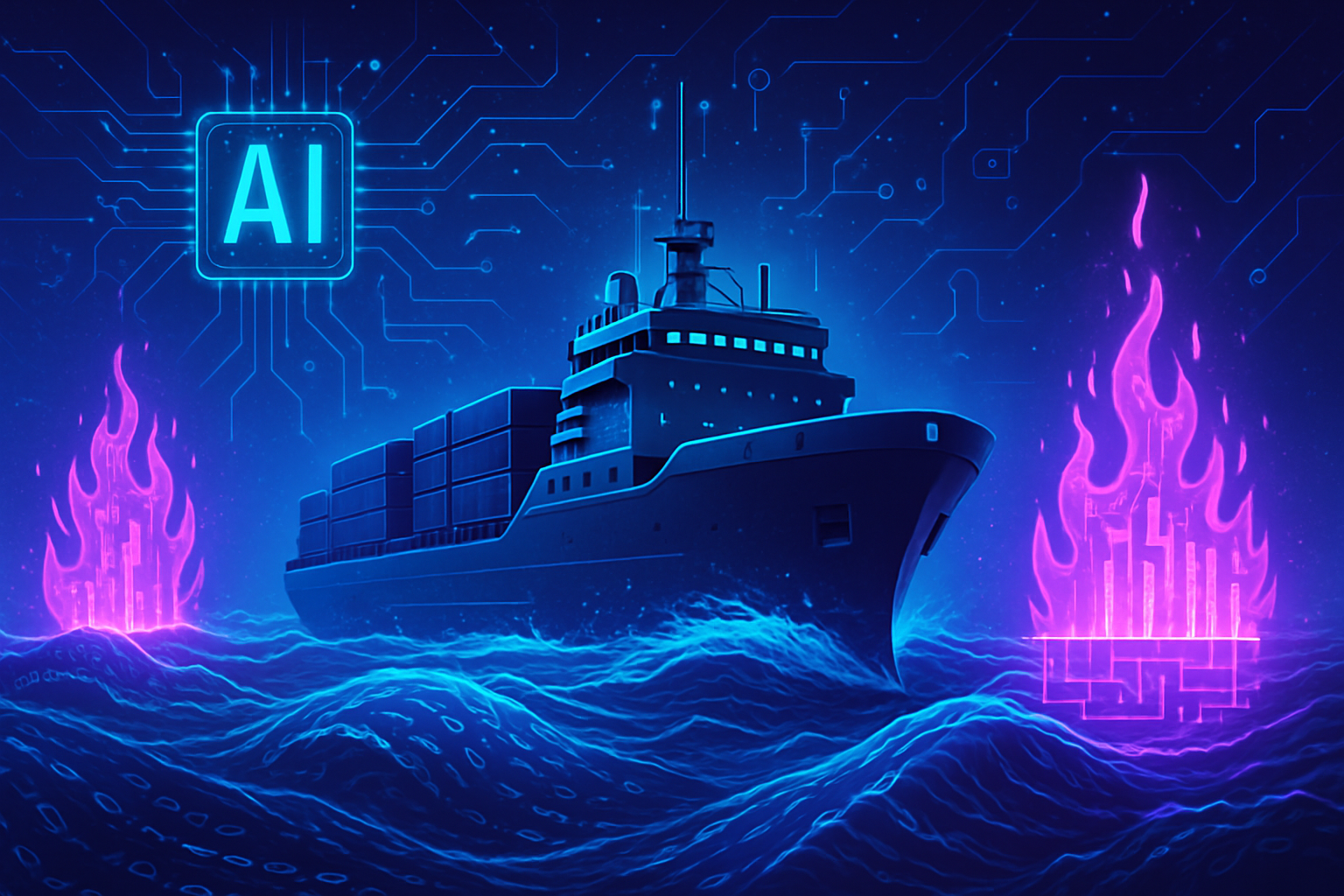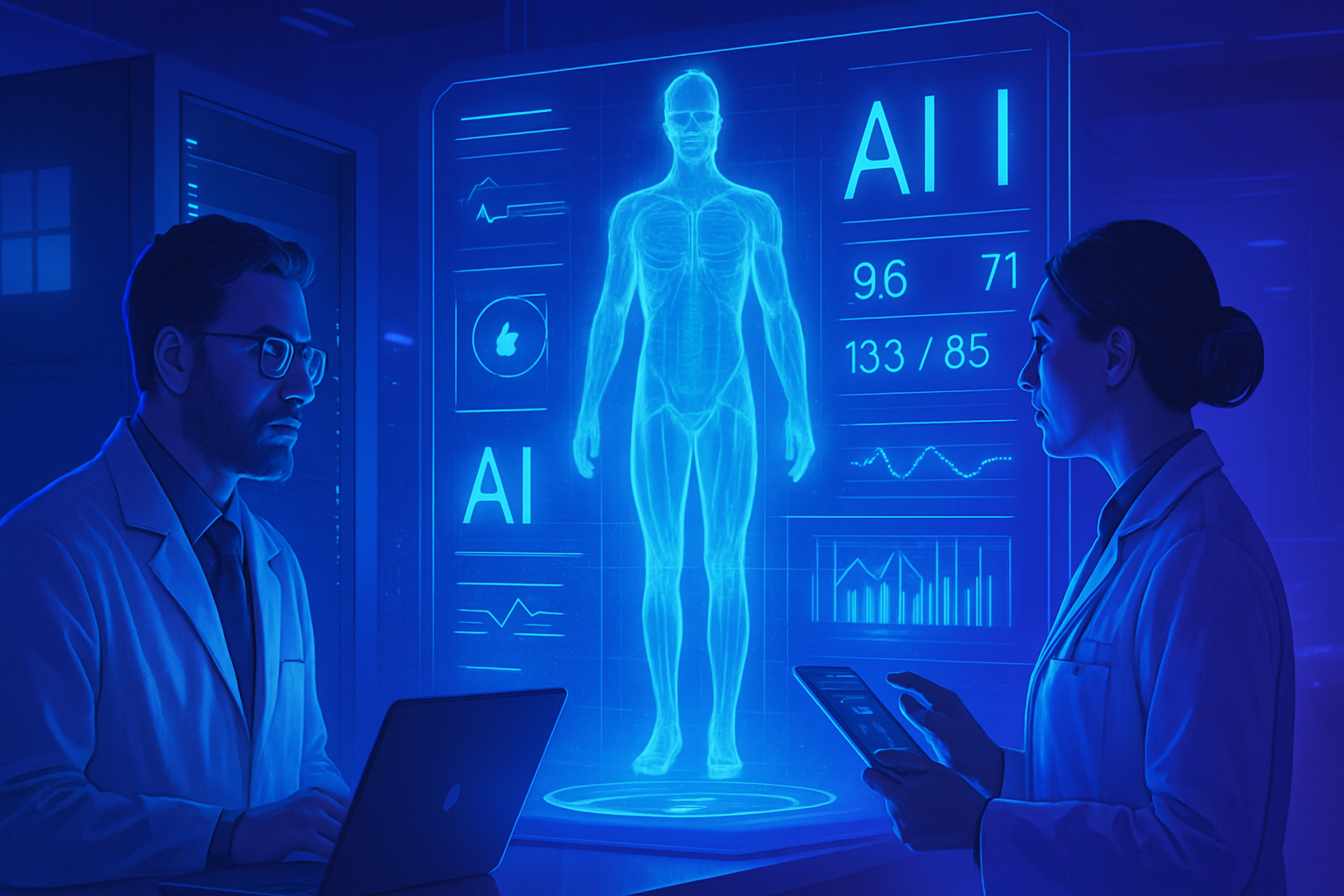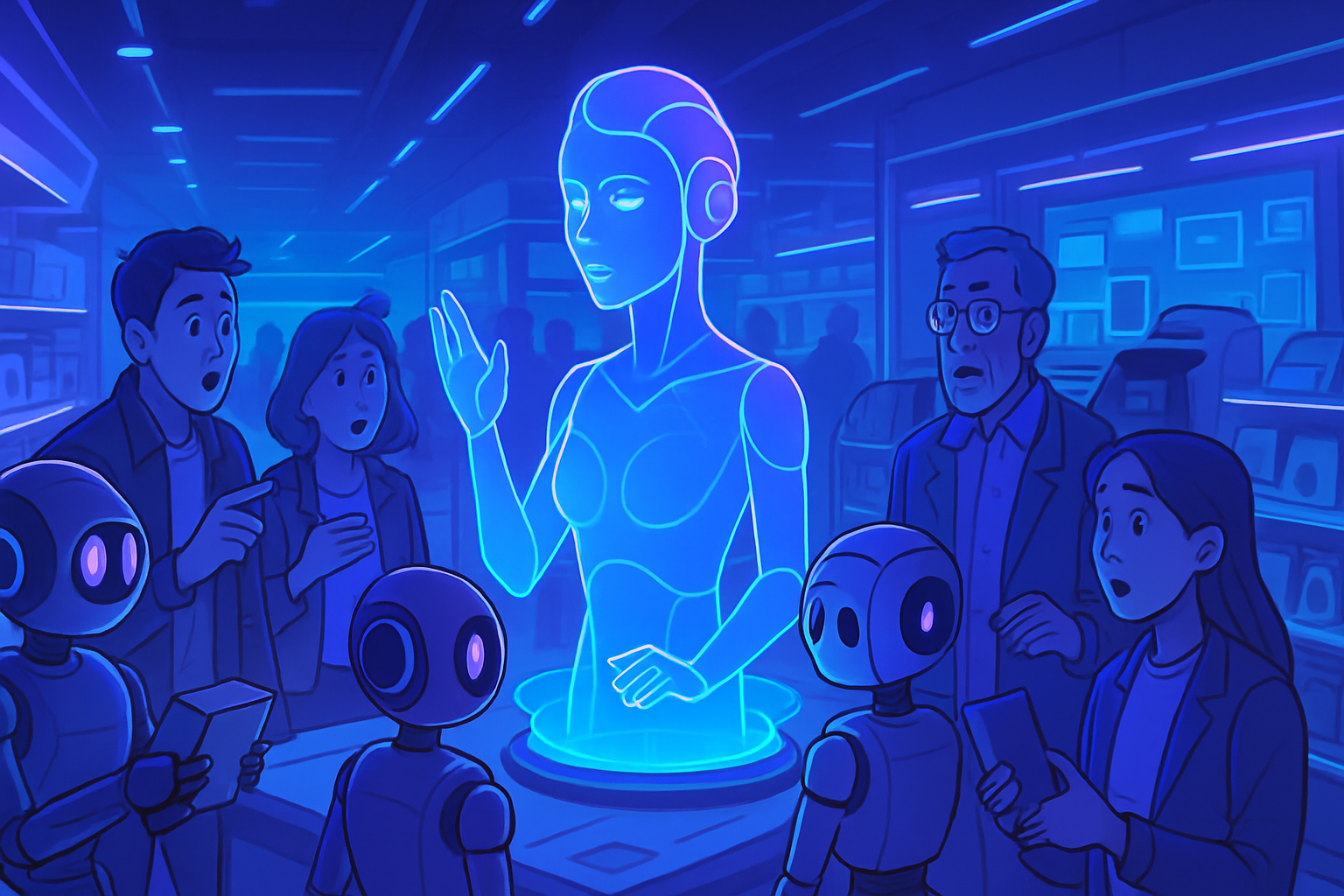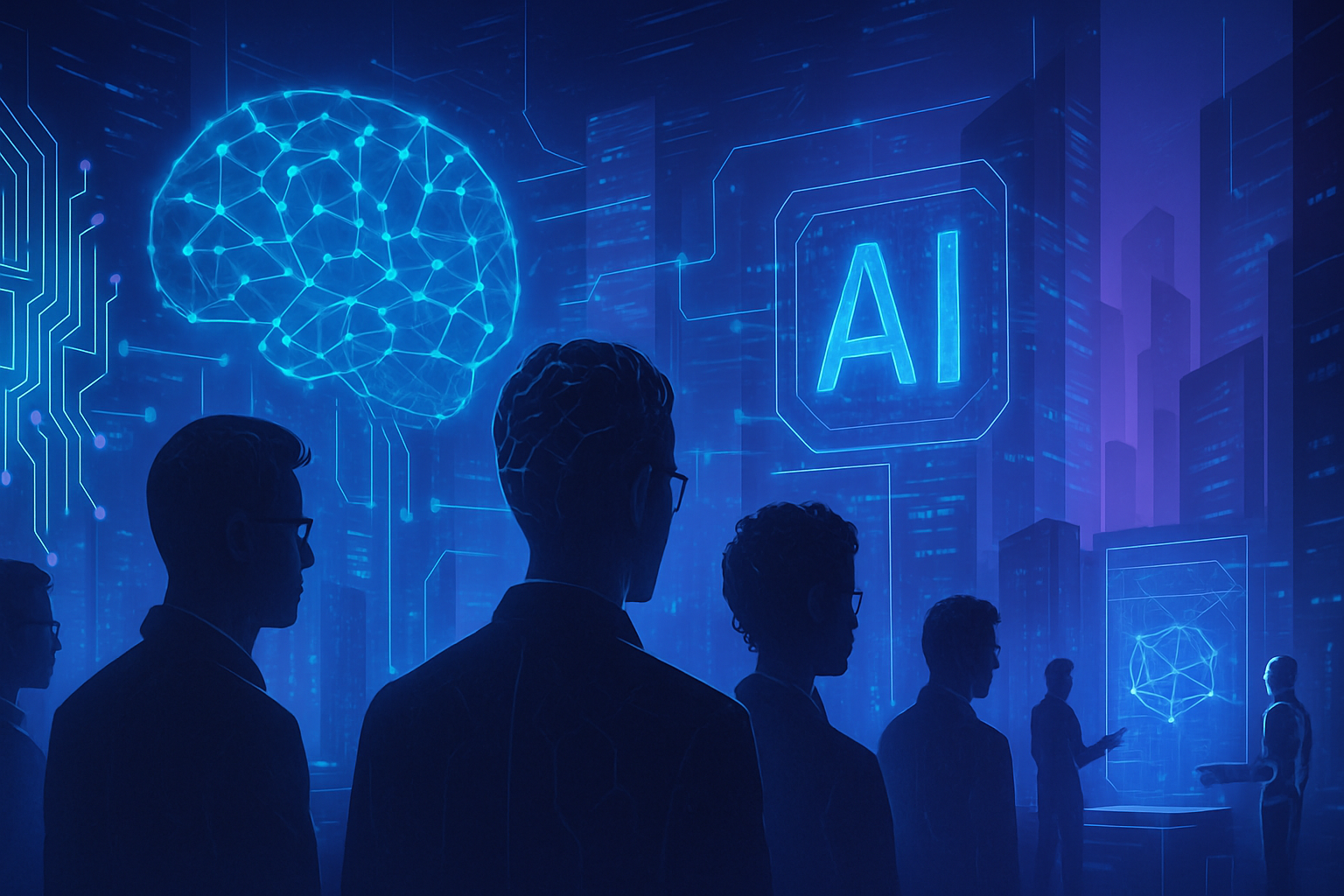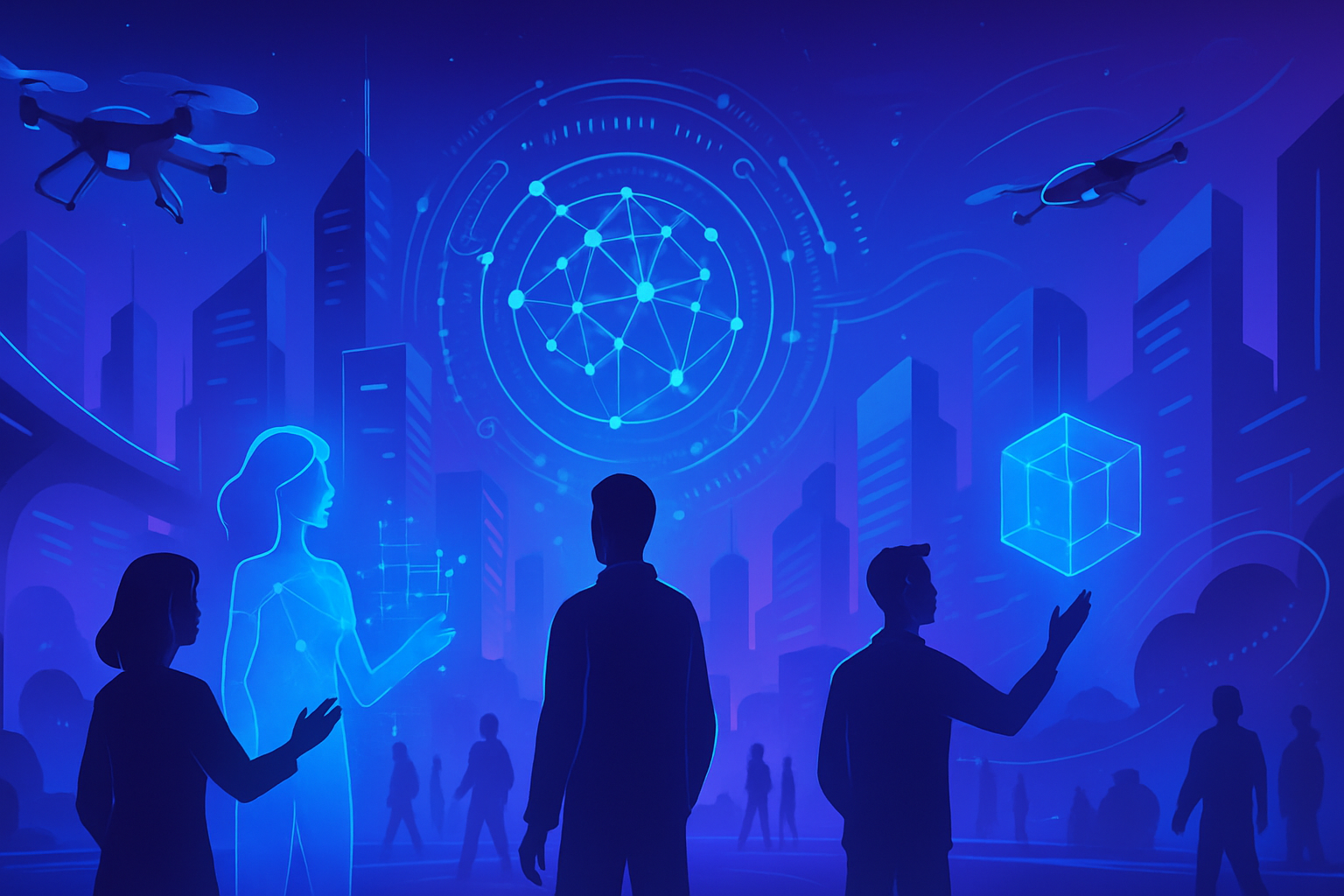Artificial Intelligence is a testament to a fascinating technological odyssey, rooted in history long before the contemporary era. Its roots delve into the innovations of the brightest minds of the 20th century, laying the groundwork for future revolutions. From rudimentary algorithms to sophisticated autonomous systems, each advancement has opened unexplored doors to unsuspected horizons.
Over the decades, AI has succeeded in transfiguring various fields, from scientific research to the entertainment industry, thus reshaping our relationship with technology. Understanding its evolution is essential to grasp the contemporary issues that shape our daily lives and interactions. _Ethical and societal challenges arise_, initiating crucial debates about the future of our coexistence with intelligent machines.
The Origins of Artificial Intelligence
Artificial intelligence (AI) has roots that date back several decades. Its history began in the 1950s, at which time pioneers like Alan Turing and John McCarthy laid the first stones of this innovative science. Turing, with his famous test, aimed to assess a machine’s ability to exhibit intelligent behavior akin to that of a human.
McCarthy, for his part, was one of the first to conceptualize the term “artificial intelligence.” At the Dartmouth conference in 1956, he gathered researchers around the idea that machines could think. This gathering was fundamental to the formalization of the basic concepts governing AI.
Technological Evolution
Over the decades, AI has undergone many phases of development. The 1970s and 1980s marked a period of disillusionment often referred to as the “AI winter.” The initially high promises were not honored, leading to a significant decrease in funding and interest in research.
The resurgence of AI was propelled by the expansion of big data and the increase in computing power in the early 2000s. Machine learning algorithms, particularly neural networks, benefited from these advances to achieve stunning performances. The rapid evolution of technologies has enabled a growing adoption of AI in various fields, such as healthcare, finance, and entertainment.
Modern Applications of AI
Contemporary applications of AI are multiple and varied. In the healthcare sector, AI-assisted diagnostic algorithms designed to detect diseases are transforming traditional medical practices. AI tools enhance the accuracy of diagnoses and optimize treatments proposed to patients.
At the same time, AI plays a dominant role in communication and information processing technologies. Chatbots, for example, provide instant customer service, thus redefining the interaction between companies and their clients. Search engines, for their part, rely on machine learning methods to deliver relevant and personalized results.
Recent Innovations
In 2023, notable advancements continue to influence the development of AI. Amazon decided to strengthen its commitment with the startup Anthropic, investing $4 billion to enhance its capabilities in artificial intelligence. This initiative aims to integrate more sophisticated AI systems into its business operations, paving the way for new strategic opportunities.
Research on atomic simulations has also been propelled by the ‘large-scale AI’ method. Researchers can now conduct complex studies on atomic interactions, fostering significant advances in the understanding of materials and chemical reactions. You can delve deeper into this topic here: large-scale AI.
Ethical and Social Challenges
Innovations in AI raise important ethical challenges. The exploitation of personal data to feed AI systems generates debates about privacy and security. Studies reveal that AI chatbots can identify racial biases, thus influencing their empathy. This issue demands particular attention in the development and implementation of these technologies.
In the fashion sector, AI also raises ethical questions, particularly regarding diversity and inclusion. Concerns about representation and biased choices in AI-generated creations, as illustrated by the case of Sheeren Wu, highlight the need for deeper reflection on the use of AI in the arts and culture. To learn more, check out this article: AI in fashion.
The Future of Artificial Intelligence
The future prospects for artificial intelligence are promising, amplifying questions about its role in society. Neuroscientists discuss the importance of innate abilities in the evolution of AIs, suggesting that a better rapprochement between humans and machines could materialize. These advancements will continue to reshape not only technological sectors but also social and cultural dynamics.
In the face of these rapid changes, industry players must also consider the legal and ethical implications of AI. The attention of regulators, as evidenced by the investigation into the export of Nvidia graphics processors to China, indicates that this ecosystem is in full mutation. The presumption of a solid legislative framework around AI is emerging as a future necessity.
Frequently Asked Questions about Artificial Intelligence: A History that Precedes 2022
What are the origins of artificial intelligence before 2022?
The origins of artificial intelligence date back to the 1950s with pioneers like Alan Turing, who formulated fundamental concepts regarding machines and intelligence. Researchers like John McCarthy also contributed to defining the term “artificial intelligence” and establishing the foundations of research in this field.
How has artificial intelligence evolved over the decades?
Over the decades, artificial intelligence has evolved through technological advancements, notably machine learning algorithms in the 1980s, the development of neural networks, and the increase in computing power in the 2000s, allowing for more sophisticated and widespread AI applications.
What were the key moments in the history of AI before 2022?
Key moments include the development of IBM Deep Blue, which defeated world chess champion Garry Kasparov in 1997, as well as significant advancements in natural language processing and computer vision in the early 2000s, leading to applications in various sectors.
What impact has artificial intelligence had on society before 2022?
Artificial intelligence has profoundly impacted many aspects of society, including the healthcare sector with AI-assisted diagnostics, transportation with the advent of autonomous vehicles, and commerce with personalized recommendations. This raised ethical questions and debates on regulation.
What are the major contributions of AI pioneers before 2022?
Pioneers such as Marvin Minsky, Herbert Simon, and Noam Chomsky paved the way for fundamental concepts in the fields of cognition, linguistics, and game theory, influencing the subsequent development of AI technologies and decision-making algorithms.
How has AI influenced other fields, such as science and technology, before 2022?
Before 2022, AI has been integrated into many scientific fields, such as biology, to model complex data, and even in astronomy, to analyze telescope data. This convergence has accelerated scientific discoveries and the development of new technologies.
Why is artificial intelligence essential for the future?
Artificial intelligence is essential for the future because it allows for solving complex problems, improving process efficiency, and innovating in areas such as healthcare, education, and sustainability. Its integration is crucial for designing solutions to current global challenges.
